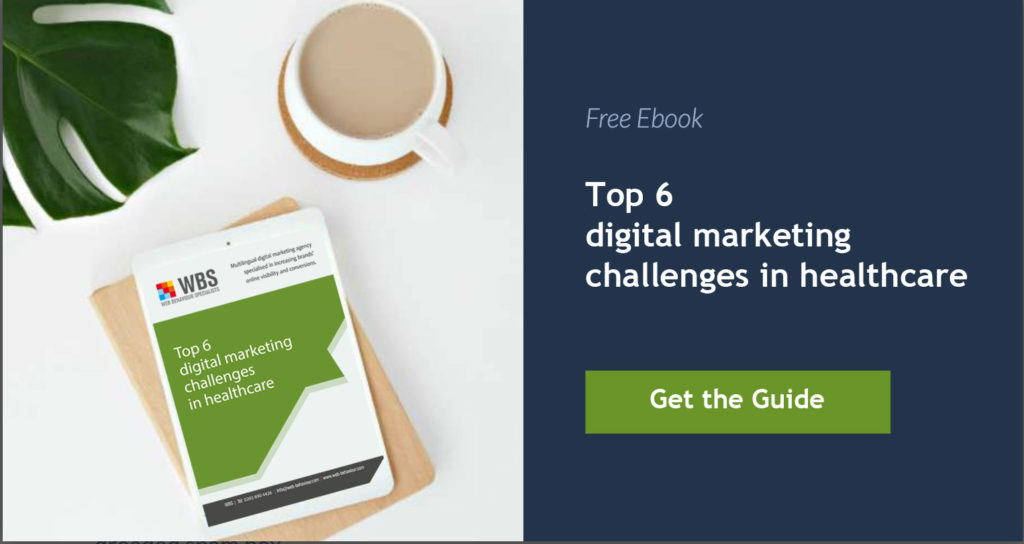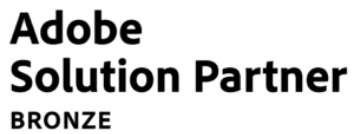There’s a lot happening in healthcare digital marketing. Changes in customer behaviour to consumed content Artificial intelligence to automated machine systems. Voice assistants. High quality management systems… So, what’s on a top healthcare marketer’s radar at the moment? Let’s take a look.
Consumer demand for control
Today’s patients and healthcare professionals are able to do extensive research online. Meaning they are far more particular about the services they receive or the products they use. Patients are no longer passive recipients of directions from doctors – they’re visiting their doctor already knowing what they want or at least having an opinion. As with any other area of their lives, consumers increasingly expect the same level of experience from every brand and it’s no different for healthcare. Consumers are taking control over their own health. With this in mind, it’s a challenge for healthcare marketers to find the right and compliant way to engage with this type of audience.
Patients want to make informed decisions about their needs so it’s crucial that healthcare brands are active online, have a strong presence on search engines, engage with patients on social media, provide quality and informative content, etc. Latest stats prove it, e.g.:
• 89% of consumers turn to a search engine when looking for answers to their healthcare queries
• 83% of patients visit a hospital’s website before booking a treatment or procedure
Consumer centricity is the key to success for healthcare brands for both patients and healthcare professionals. For example, physicians are becoming harder to reach through sales reps, and more than half of outreach to healthcare providers is now through non-personal marketing channels. It’s important to keep in mind that without understanding digital behaviour, it’s unlikely that companies will be able to generate the best experience for their customers. It’s important to realise that communication goes far beyond a consultation with the HCP and if anything, the majority of touch points are now digital based.
Value-driven content
Traditionally, pharmaceutical companies were in control of how and when they released information about their products or treatments. With digitisation there is a vast amount of information online and beyond that, consumers can openly share their opinions and reviews with others. This means that patients are becoming far less dependent on doctors to get advice about a product or service.
How do you use this to your advantage and grow your audience? By creating targeted, value-driven branded content that offers prospective or current patients insights into relevant information. By providing answers to common patient pain points in an inspiring and engaging way, you’ll grow your audience while fostering trust and positioning your brand as a thought-leader.
Create content that offers relevant solutions and is helpful for your users in each stage of the customer journey. If you want a customer to convert (e.g. schedule an appointment or call you) make sure that your landing pages and content offer more value, actionable advice or offers to encourage them to e.g. fill the form in with their contact details.
Where to start?
Create content around micro-moments. In the case of patients, this could include moments like:
• What’s wrong with me moments – more and more consumers are asking the internet what’s wrong with them. Do you have abdominal pain? What could cause sudden sniffles? To catch patients in these want-to-know moments you need to have the answers to their questions on your site.
• Where can I get treatment moments – “near me” searches for health-related services have doubled since 2015. It means that it’s crucial to have online visibility when someone searches for local services.
• Who can I trust moments – after the initial “near me” research for places that offer the right services, consumers typically start more in-depth research for a practitioner. It’s crucial to have trust-building content like testimonials, introduction videos, patient stories, etc.
• I’m ready to book moments – While most patients choose their healthcare provider carefully, they don’t have that much patience when it comes to booking an appointment. Because of this, your booking process should be as quick and simple as possible.
This is the base for any marketing activity in any sector, and it’s no different in healthcare. You have a greater chance of reaching and influencing your potential audience by being there when they are looking for information
Social media
Strict regulation of healthcare communications still acts as a motivator for the industry to be cautious with social content, yet increasing numbers of brands are taking to social media anyway. Why? Pharma, like other sectors, has realised that there is an opportunity in engaging in dialogue with customers on social media.
Social networks have become an important health resource for both patients and carers as well as healthcare professionals. For example:
- 77% of patients use online reviews to select a physician
- 80% of social media users look for health related information
- 88% of healthcare professionals research, look for information on treatments and changes in the healthcare industry
Social media networks can be a great enabler for pharma companies in terms of deepening relationships with potential customers. With the right strategy, social media will be a powerful tool to build trust, reach more patients & HCPs and spread valuable medical information.
Check out: 7 effective social media strategies for healthcare!
It’s also worth mentioning influencers when talking about social media for healthcare. While influencers can be effective in any field, they’re especially influential in healthcare.
- 41% of patients say that social media influences their decisions when choosing healthcare providers as well as the way they deal with their health
- Among online health information seekers, 25% tried to find others who might share the same health concerns
- 40% of the online users consulted online reviews or rankings of healthcare services or treatments
- 35% of online users have read or watched someone else’s experience about health or medical issues in the past year
Reliable online sources of information usually get more attention and can have a stronger influence on people’s attitudes and behaviours. People value the input of their peers and are much more likely to believe a real person over an organisation. An influencer in the healthcare space can be an advocate, activist, celebrity or an expert and physician.
Getting active on social media will definitely require the introduction of some internal processes and frameworks to decide e.g. how to manage comments. But as relationships have always been an important part of healthcare marketing strategies, the rise of social media means it’s easier to make a connection with your target audience than ever before. When done correctly, social media marketing can bring great results for healthcare brands.
Technology
Virtual reality, augmented reality, artificial intelligence, machine learning… Technology has become an increasingly integrated part of our everyday lives and it’s no different for healthcare. Pharmaceutical companies can use this immersive technology to break down walls between its business and clients, partners, patients or consumers.
For example, pharma made a significant shift towards using mobile technologies over the past few years. Throughout the day doctors have the ability to access any clinical information just by using their smartphone. That enables physicians to focus on more complicated tasks and leave the easy ones to be solved by smart technologies.
There are multiple use cases where machine learning and automation tactics can influence pharma’s marketing future: from cost savings, remote control and tracking patients’ journeys to adjusting and optimising machine functions from any point in the world with no need of human touch.
It’s important to remember that technology alone, such as smartphones, is not a silver bullet for healthcare. Instead, success lies in the convergence of digital health and human interaction. Chatbots will, probably, never really replace humanity and empathy. True emotions and understanding are what people expect most from life sciences and it certainly cannot yet be provided by technology itself.
Strategic multichannel approach
The usage of online resources via several channels continue to increase significantly and it enables anyone to receive medical updates at any time from anywhere. There are many reasons why having a multichannel marketing strategy is so effective, especially within the healthcare sector. Relying on one single channel to get your audience’s attention simply isn’t enough. You must connect with them wherever they are, whenever they’re searching for information. And in the healthcare sector, this applies to strategies targeting patients as well as those targeting healthcare professionals, or both.
Everyone is consuming information through a variety of channels and the healthcare industry is no different. In today’s healthcare marketing landscape, customers and patients have a lot of choices for how they interact with an organisation – both digital (website, social media, blogs, webinars) and traditional channels (events, seminars, direct mail, etc.).
According to the latest stats, multichannel campaigns engage patients and HCPs up to four times more than single-channel campaigns do. Therefore, incorporating a multichannel marketing campaign can significantly enhance your chances of success.
Multichannel Marketing
Multichannel marketing allows you to connect with your target audience where they want, how they want and when they want. Multiple interactions with the brand, e.g. through social media networks, email, website, etc. allow your potential customers to get more familiar with your brand, products or treatment options. And it makes no difference whether you’re a pharmaceutical manufacturer, a hospital or dental practice – thanks to multiple interactions with your brand, your target audience will recognise you and start to trust you much more quickly.
Multichannel marketing gives healthcare marketers the opportunity to create multiple touch points with their target audience, regardless of whether it’s with patients, carers or healthcare professionals. This means we can reach them when, where and how they want and give them a better overall experience.
We see, in general, hospital and healthcare marketers are working harder and harder to connect with customers online, focussing on their needs and meeting those needs through more channels. It’s important to keep up to date with general digital marketing trends as well as healthcare specific trends. This will keep your brand in the best position for success.
No matter what your approach to taking advantage of digital marketing trends is. Always keep in mind that you want to position your brand online to be a safe, credible, and trusted source of information.









